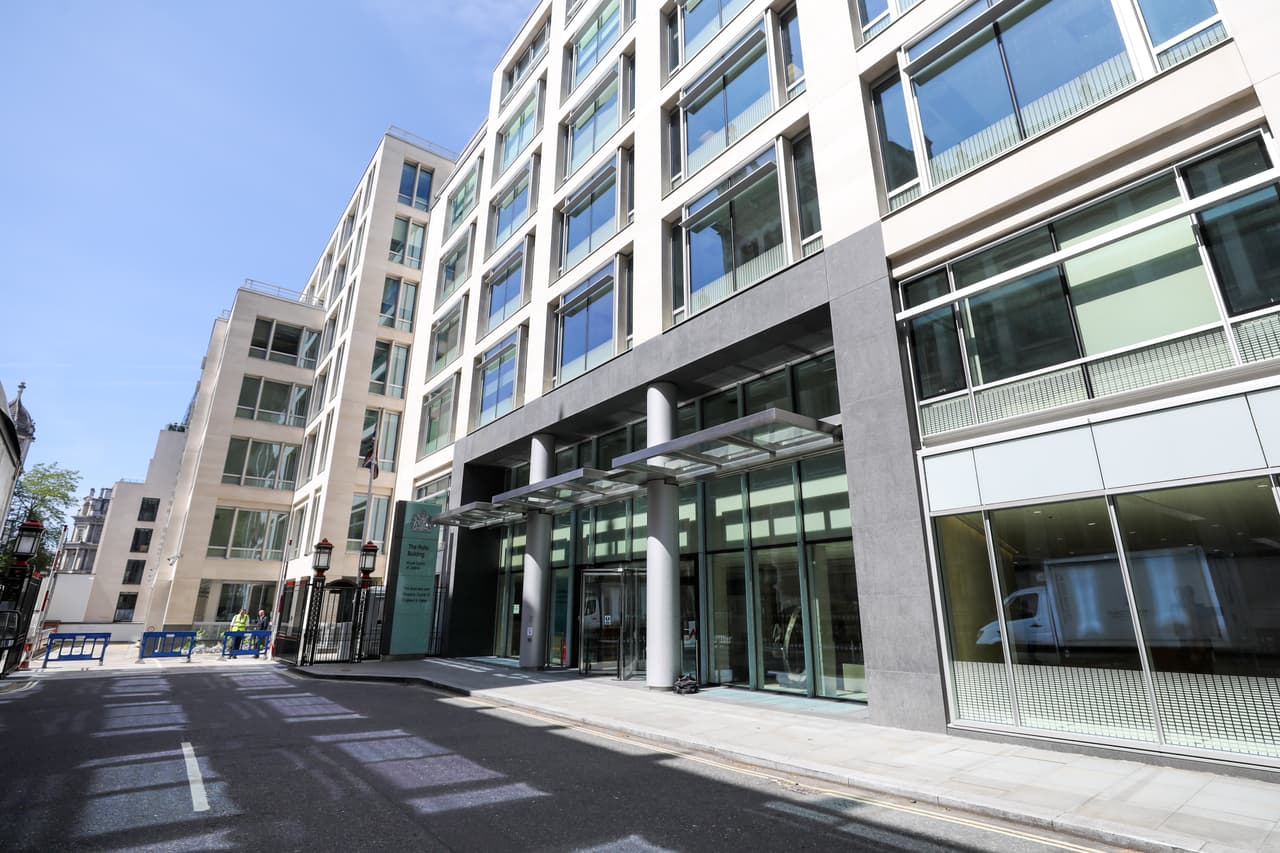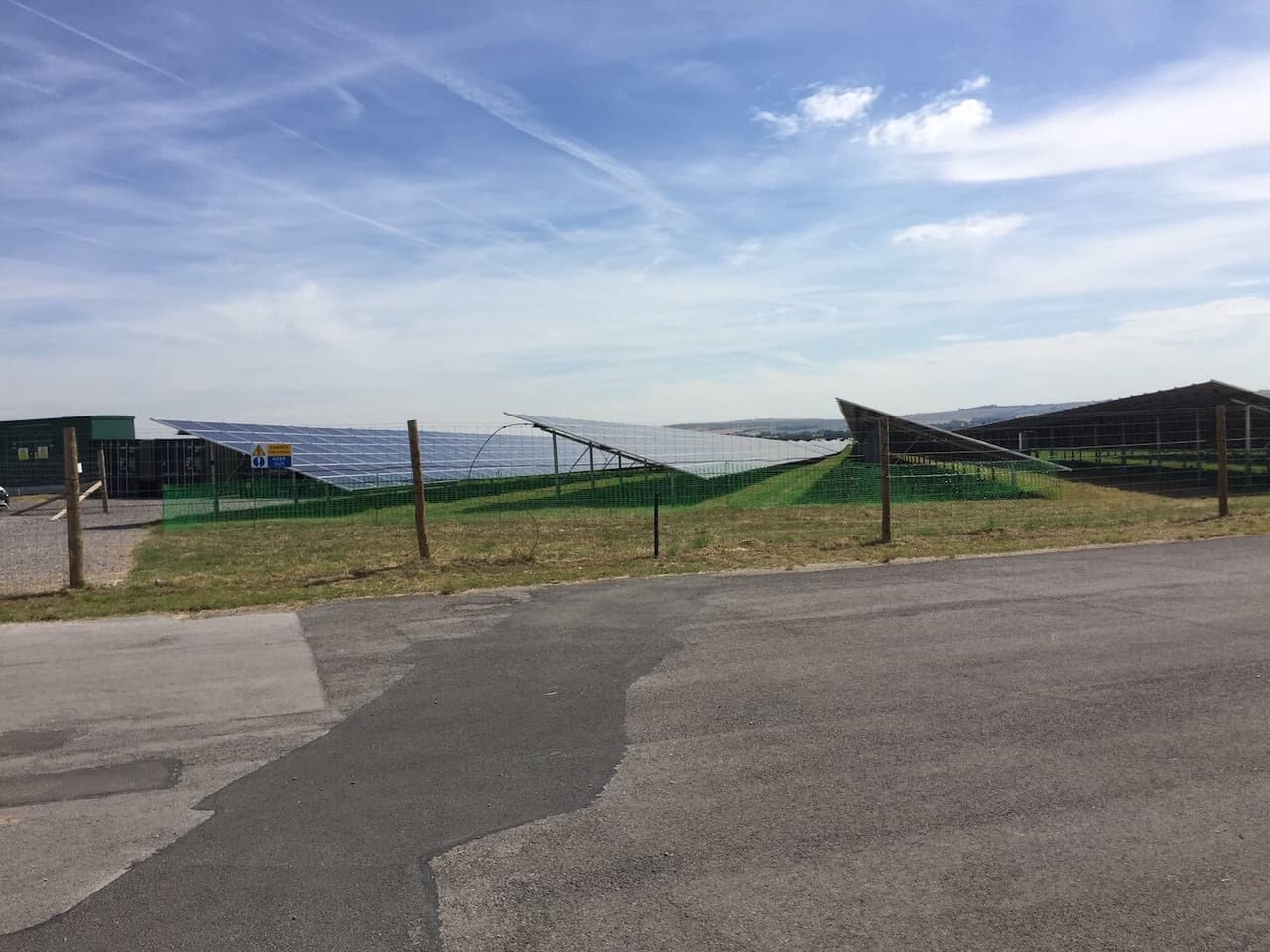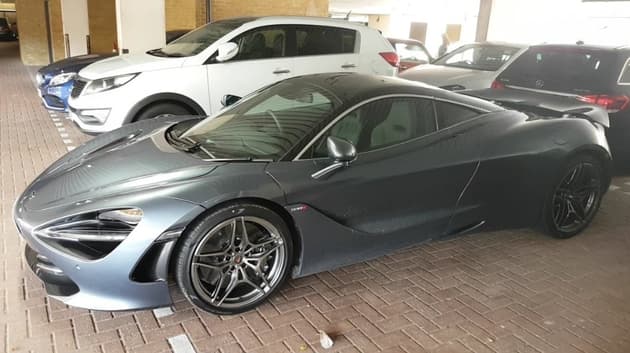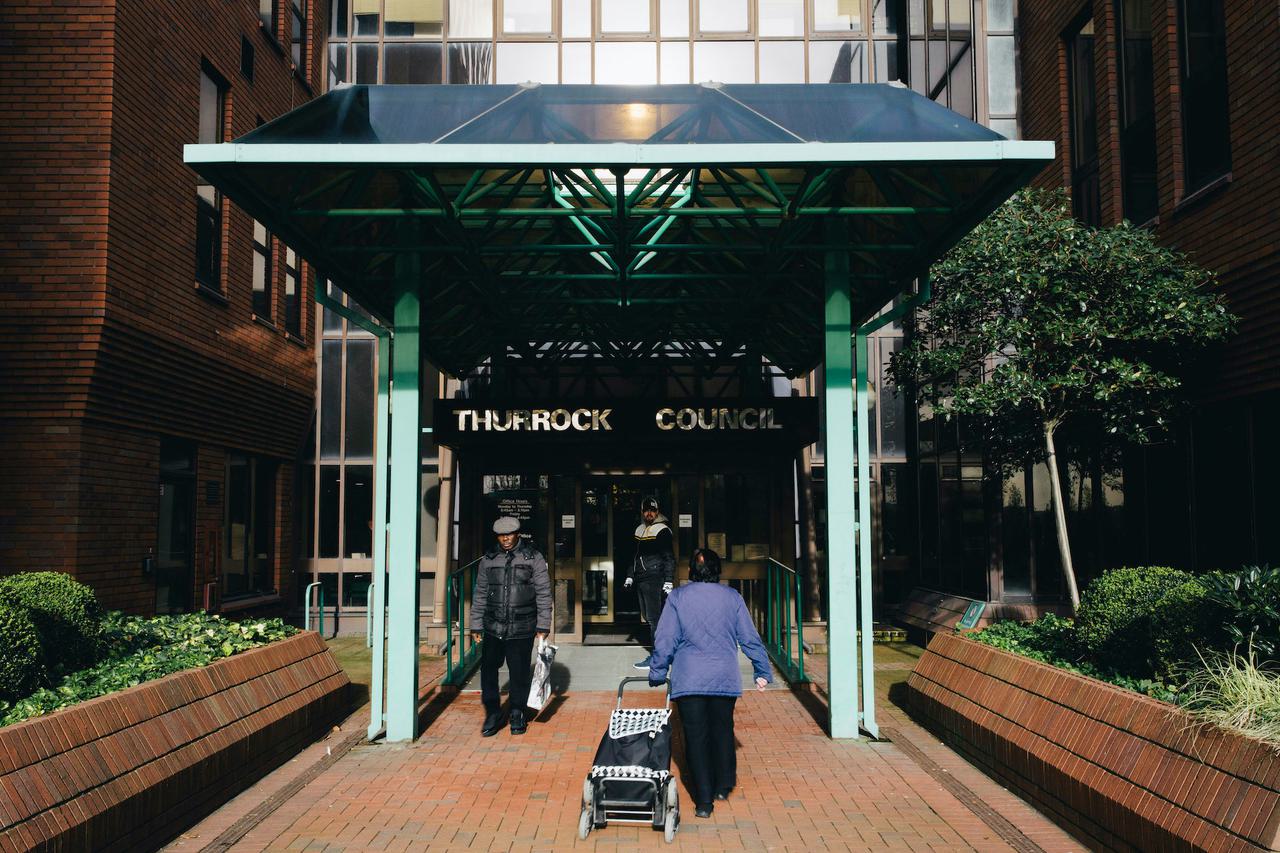
Fraud allegations call £400m council investments into question
Rockfire Capital, the company at the centre of the Bureau’s investigation into Thurrock council’s investment spree, has gone into voluntary liquidation just as another business owned by the same man faces a legal battle in court
A businessman has been accused of defrauding a local authority of £5m as part of a taxpayer-funded investment deal, a court heard this week.
The Bureau had previously revealed how companies owned by Liam Kavanagh raised hundreds of millions of pounds of public money from local authorities through a complex and potentially risky network of investment bonds and vehicles relating to investments in solar farms.
The high court dispute revolves around a deal for 19 solar farms between Toucan Energy Holdings, owned by Kavanagh, and Wirsol, an energy business.
The high court was told that Kavanagh’s company had received £145m from Thurrock council in Essex to fund the refinancing of a series of solar farms. However, a document advertising the deal to the council failed to mention that the sites were at the centre of an ongoing legal dispute over alleged defects, and that a separate Kavanagh-owned company, Rockfire Capital, would take a £5m commission fee. The court was told that both omissions had breached strict rules and, lawyers claimed, amount to fraud.
The Bureau has also learnt that Rockfire Capital is being voluntarily liquidated, with less than £200,000 in assets.
Kavanagh rejected that there had been any wrongdoing. He told the court he saw no reason to include the fee in the document, and did not disclose it to Thurrock at the time, because the council knew that Rockfire Capital “always charges a commission”.
 Liam Kavanagh, the owner of Rockfire Capital and Toucan Energy Holdings
Liam Kavanagh, the owner of Rockfire Capital and Toucan Energy Holdings
He also said that the council was aware of the dispute with Wirsol, the energy firm that sold the solar farms, in which his company claims that 15 of the sites were “blighted by defects” and worth nearly £20m less than the sale price. This allegation and Wirsol’s claim of money still owed for the deal are at the centre of the current civil trial at the high court.
The court also heard an allegation that Kavanagh treated his businesses as a personal “cashpoint”. The allegation was made in messages sent by a director of one of his own companies, who later told the judge that Kavanagh had taken out large sums of money at short notice and with little explanation, and suggested some of it may have been used to buy cars.
A year-long investigation by the Bureau of Investigative Journalism found Thurrock has about £420m invested in bonds connected to Rockfire Capital. All of that money was borrowed from more than 150 other local authorities, including police and fire services. The borrowing and investments were overseen by Sean Clark, the council’s director of finance, largely outside public and democratic scrutiny.
Scores of councils in the UK have turned to investment strategies as they desperately try to deal with their financial crisis. More than £6.6bn was poured into commercial property in 2018-19 to replace funding lost to government cuts. Thurrock alone borrowed £1bn from other councils and invested most of the money in the renewable energy sector.
John Kent, leader of the Labour group, has called for urgent answers from the council, which has to date failed to respond to any of the Bureau’s questions. He said: “The council must now provide a full and detailed explanation about the level of financial risk to Thurrock residents and account for the £5m payment to Rockfire.”

The Toucan Wirsol dispute
The case revolves around a May 2017 deal between Toucan and Wirsol to buy 19 solar farms.
Thurrock and Warrington councils, which had already invested millions in similar Rockfire projects, put £40m and £20m respectively into the deal. A subsidiary of Toucan then bought the 19 sites and also took on a large loan the previous owners had arranged with a German bank to finance the construction work.
In late 2017, Wirsol asked Toucan for £6.4m it believed it was owed as part of the sale. When no payment was forthcoming, the company took legal action. Toucan issued a counterclaim, alleging that 15 of the sites were “blighted by defects” and were worth nearly £20m less than the sale price. Wirsol staunchly denies this.
Shortly after Wirsol began legal proceedings, Toucan issued a prospectus advertising the opportunity to refinance the 19 solar farms through two bonds totalling £145m. In court Kavanagh confirmed the brochure was sent to only one potential investor - Thurrock council, which already had £40m tied up in the farms. The prospectus, a formal document covered by FCA rules, described the sites as “fully operational” and made no mention of the alleged defects or the legal dispute.
It stated the existing debt owed to the German bank was £85m and that Thurrock’s investment into a bond of the equivalent amount would be used to repay the loan. In fact the outstanding amount was £78m – leaving £7m unaccounted for when the portfolio was eventually refinanced in August 2018.
Giving evidence via video link from Romania, Kavanagh confirmed that £5m of this sum was paid to Rockfire Capital for arranging the deal. The court was told there had been no mention of the fee in the prospectus nor in Kavanagh’s formal witness statements in the proceedings. Nor did he tell the managing director of his company that was directly responsible for the bonds.
The payment was only discovered earlier this year in an invoice which described it as “commission”. Richard Slark, giving evidence as a solar valuation expert for Wirsol, described the £5m fee as “excessive” and “out of the market”.
The Financial Conduct Authority (FCA) requires all material advertising or promoting an investment opportunity to be “clear, fair and not misleading”. Failure to do this is a criminal offence.
Craig Morrison, acting for Wirsol, told the court the bond prospectus signed by Kavanagh and issued by one of his companies was “plainly misleading” and as a result breached the FCA rules, adding that the businessman must have known it was “fraudulent” as it was signed in full knowledge that the commission was not mentioned.
Kavanagh replied: “You are basically accusing me of fraud.”
Morrison said: “I am absolutely accusing you of fraud, Mr Kavanagh, in light of the answers you have given.”
Kavanagh denied wrongdoing. He told the court Thurrock had already paid the £145m before the prospectus was issued, and that he had already told the council about the problems with the sites and the knock on effect on their value in separate discussions. He added that he had not read the document in full before signing.
Morrison told the court the prospectus listed the existing debt, which the bonds would refinance, as £85m, adding: “It says the existing debt is £85m. It says you are going to use the new bond funds to pay off the existing bank debt. So it must be saying that you are going to use the £85m you raised to pay off the existing debt.”
“No, we used the money to pay off the existing debt and to pay our fee,” Kavanagh said.
He added that Thurrock should already have known about the £5m fee. “They were aware that Rockfire Capital always charges a commission for the work that it does on behalf of the issuer. In all of the transactions and all of the many solar farms that we own it is exactly the same,” he said.
Despite repeated inquiries, including via the Freedom of Information Act, Thurrock has refused to reveal how much money it invested in Rockfire projects, making it impossible to know how much public money Kavanagh’s company has received in commission fees. Kavanagh personally has received dividends totalling nearly £8m from the company since 2015. His earnings have helped him maintain a fleet of luxury cars.
 One of Liam Kavanagh's luxury cars
One of Liam Kavanagh's luxury cars
The court also heard evidence from Kavanagh’s colleagues alleging he took money out of the business.
Dan Kirk, the managing director of Toucan Energy, sent WhatsApp messages to Mark Hogan, the managing director of Wirsol, expressing frustration that Kavanagh was, he believed, taking money out of the company for his own interests, rather than that of his taxpayer investors.
Join the Bureau Local
Become part of the Bureau Local — our collaborative network of reporters and citizens — and tell stories that matter.
Find out more“I’m not working with someone that just treats us like a cashpoint for his own equity,” Kirk wrote. Hogan responded: “I agree – something is fundamentally wrong.”
Kirk told the court that when he joined Toucan in early 2018 he expected to manage the bonds local authorities had invested in, but said he was not allowed to oversee them. He alleged that Kavanagh would remove “large amounts of cash” from the business with no explanation.
“It would have been easier for me if I had as much information as possible, which would include knowledge of all that cash,” he said. “I expected to have that but I didn’t have that and I got frustrated with Mr Kavanagh as he was preventing me from solving some of the problems I had on my plate at the time.”
Kirk eventually threatened to leave the company, he said. He added that he had not been told about the £5m commission fee paid during the Thurrock deal.
Kirk has since contacted the Bureau to say he no longer holds these concerns about Kavanagh.

Borrowing a billion
Thurrock is by far the biggest local authority investor in solar bonds connected to Rockfire Capital, with hundreds of millions of pounds tied up in deals as part of a wider £815m renewable energy investment strategy.
The Bureau’s investigation had been able to trace £74m in payments linked to Rockfire by piecing together the small amounts of publicly available data, including the original £40m invested in the Wirsol deal. The court proceedings have confirmed for the first time that Thurrock’s total investment in those 19 sites was £145m.
That deal, like the others, is understood to have been arranged and approved by the finance director Sean Clark. It was never discussed in public and nor were opposition group leaders provided an overview of it before a commitment was made, as required by the council’s rules.
In an interview with the Bureau, Clark said all the investments were the result of “intermediaries” approaching him with money-making opportunities. He also publicly endorsed Rockfire with a statement on the company’s website.
The Bureau has been able to determine that all of the investments were funded by loans from other local authorities. At least 150 public bodies across the UK – including councils, fire and police authorities – have lent Thurrock money since 2016. In total the council has more than £1bn in outstanding debt relating to these loans.
Information confirmed on-the-record by Rockfire and the other councils involved suggests Thurrock’s total exposure to Kavanagh’s business ventures is probably about £420m. Despite numerous requests, including via the Freedom of Information Act, the council refuses to divulge exactly where it invested the money, meaning many hundreds of millions are unaccounted for.
Thurrock council told the Times it had “never knowingly made a payment of ‘commission” but did accept that there will be legal and other legitimate costs preparing bonds. The alleged defects “have had no impact on the performance of our bond”, a spokesperson said, adding that Thurrock conducted its “own due diligence” and took independent advice on all projects. The investments have “earned the council over £32 million a year over the past two years”.
Three other councils have ongoing, multimillion pound investments in solar bonds marketed by Rockfire. Newham (£5m), Havering (£3m) and Bexley (£3m) invested as a group in two solar farms in 2017. Warrington once had more than £50m in the bonds, including the Wirsol portfolio, but redeemed most of them around the same time the 19 farms were refinanced.
Newham, Havering and Bexley told the Bureau that Rockfire Capital’s liquidation will not affect their investments, because although Rockfire marketed the opportunities, councils actually invested in bonds issued by sister companies. These in turn lent the cash to a string of smaller companies that then purchased the solar farms.
Despite Rockfire going into liquidation, the solar farms are still ultimately owned by Kavanagh.
The trial at the high court continues.
Our reporting on local power is part of our Bureau Local project, which has many funders. None of our funders have any influence over the Bureau’s editorial decisions or output.
Header image: The Rolls Building in London, where the case is being heard
-
Area:
-
Subject:





